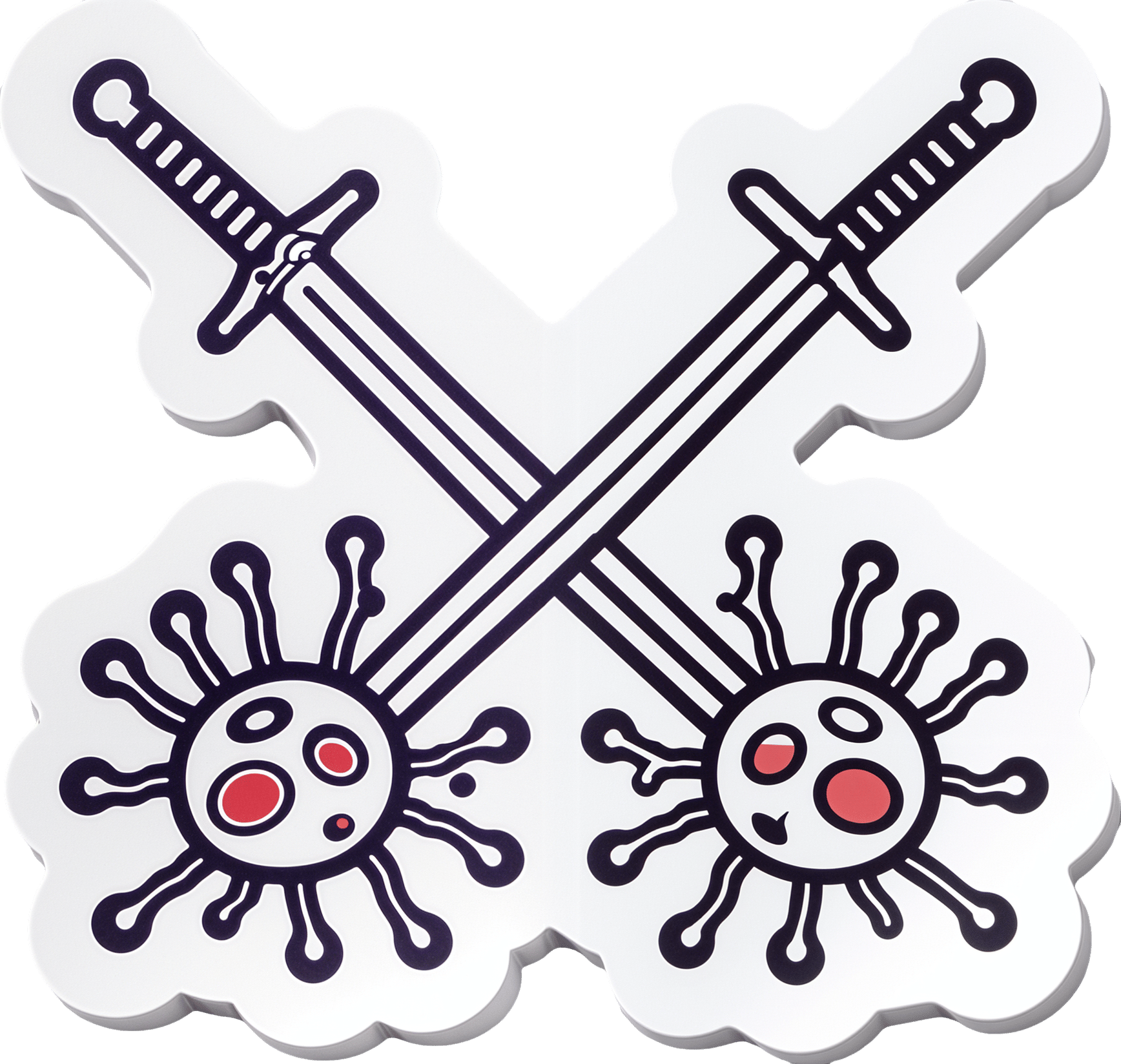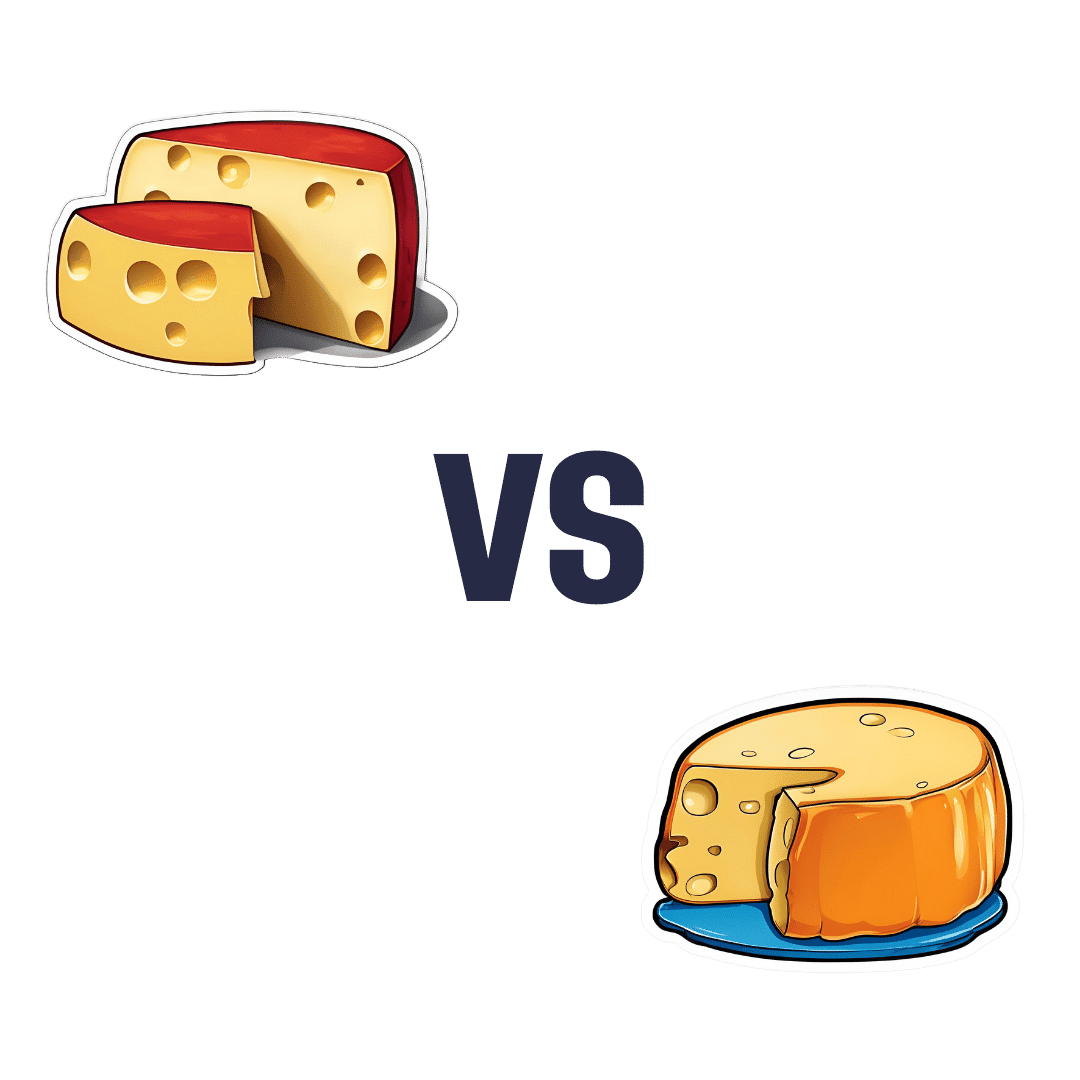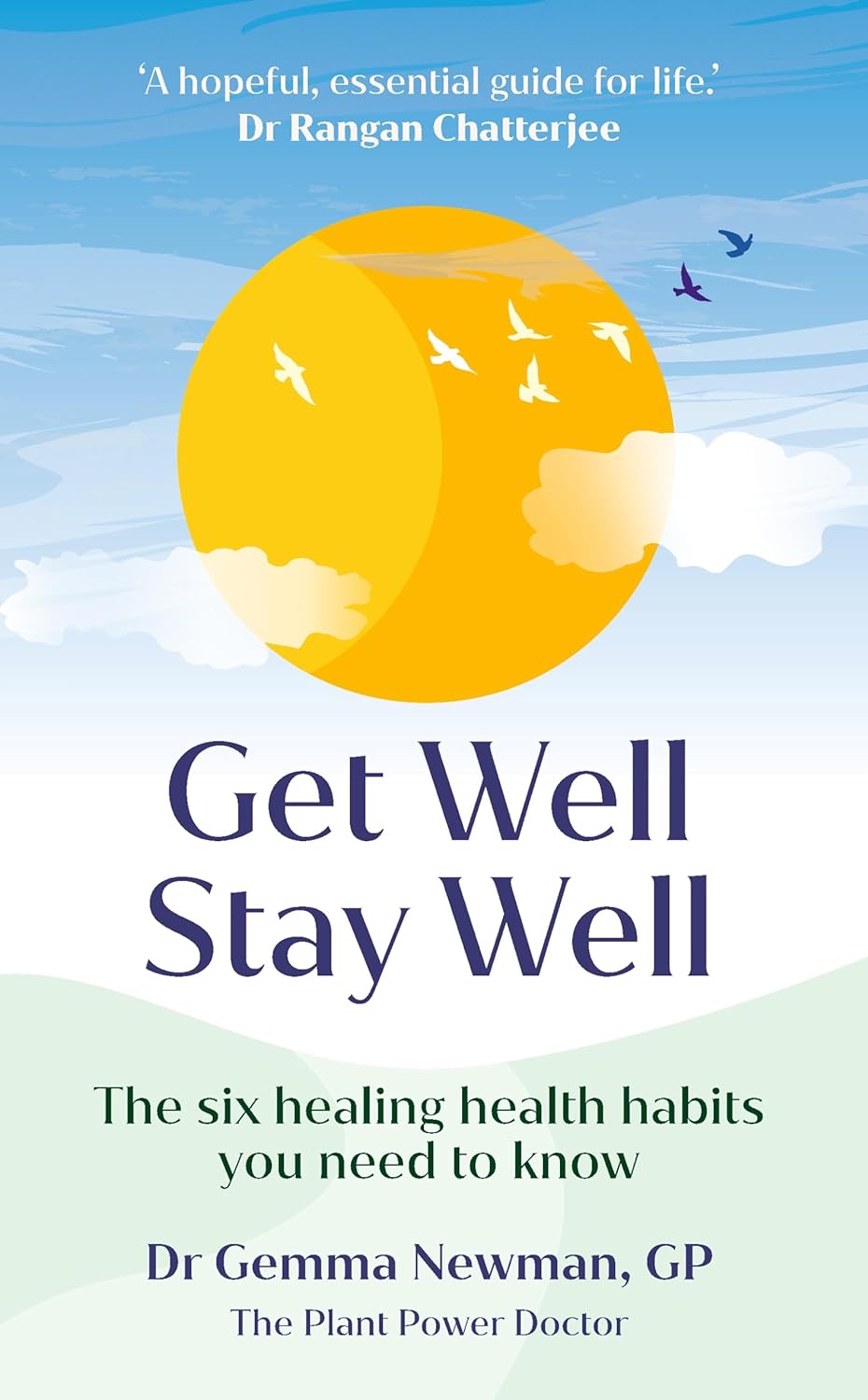
Keep Inflammation At Bay
10almonds is reader-supported. We may, at no cost to you, receive a portion of sales if you purchase a product through a link in this article.
How to Prevent (or Reduce) Inflammation
You asked us to do a main feature on inflammation, so here we go!
Before we start, it’s worth noting an important difference between acute and chronic inflammation:
- Acute inflammation is generally when the body detects some invader, and goes to war against it. This (except in cases such as allergic responses) is usually helpful.
- Chronic inflammation is generally when the body does a civil war. This is almost never helpful.
We’ll be tackling the latter, which frees up your body’s resources to do better at the former.
First, the obvious…
These five things are as important for this as they are for most things:
- Get a good diet—the Mediterranean diet is once again a top-scorer
- Exercise—move and stretch your body; don’t overdo it, but do what you reasonably can, or the inflammation will get worse.
- Reduce (or ideally eliminate) alcohol consumption. When in pain, it’s easy to turn to the bottle, and say “isn’t this one of red wine’s benefits?” (it isn’t, functionally*). Alcohol will cause your inflammation to flare up like little else.
- Don’t smoke—it’s bad for everything, and that goes for inflammation too.
- Get good sleep. Obviously this can be difficult with chronic pain, but do take your sleep seriously. For example, invest in a good mattress, nice bedding, a good bedtime routine, etc.
*Resveratrol (which is a polyphenol, by the way), famously found in red wine, does have anti-inflammatory properties. However, to get enough resveratrol to be of benefit would require drinking far more wine than will be good for your inflammation or, indeed, the rest of you. So if you’d like resveratrol benefits, consider taking it as a supplement. Superficially it doesn’t seem as much fun as drinking red wine, but we assure you that the results will be much more fun than the inflammation flare-up after drinking.
About the Mediterranean Diet for this…
There are many causes of chronic inflammation, but here are some studies done with some of the most common ones:
- Beneficial effect of Mediterranean diet in systemic lupus erythematosus patients
- How the Mediterranean diet and some of its components modulate inflammatory pathways in arthritis
- The effects of the Mediterranean diet on biomarkers of vascular wall inflammation and plaque vulnerability in subjects with high risk for cardiovascular disease
- Adherence to Mediterranean diet and 10-year incidence of diabetes: correlations with inflammatory and oxidative stress biomarkers*
*Type 1 diabetes is a congenital autoimmune disorder, as the pancreas goes to war with itself. Type 2 diabetes is different, being a) acquired and b) primarily about insulin resistance, and/but this is related to chronic inflammation regardless. It is also possible to have T1D and go on to develop insulin resistance, and that’s very bad, and/but beyond the scope of today’s newsletter, in which we are focusing on the inflammation aspects.
Some specific foods to eat or avoid…
Eat these:
- Leafy greens
- Cruciferous vegetables
- Tomatoes
- Fruits in general (berries in particular)
- Healthy fats, e.g. olives and olive oil
- Almonds and other nuts
- Dark chocolate (choose high cocoa, low sugar)
Avoid these:
- Processed meats (absolute worst offenders are hot dogs, followed by sausages in general)
- Red meats
- Sugar (includes most fruit juices, but not most actual fruits—the difference with actual fruits is they still contain plenty of fiber, and in many cases, antioxidants/polyphenols that reduce inflammation)
- Dairy products (unless fermented, in which case it seems to be at worst neutral, sometimes even a benefit, in moderation)
- White flour (and white flour products, e.g. white bread, white pasta, etc)
- Processed vegetable oils
See also: 9 Best Drinks To Reduce Inflammation, Says Science
Supplements?
Some supplements that have been found to reduce inflammation include:
(links are to studies showing their efficacy)
Consider Intermittent Fasting
Remember when we talked about the difference between acute and chronic inflammation? It’s fair to wonder “if I reduce my inflammatory response, will I be weakening my immune system?”, and the answer is: generally, no.
Often, as with the above supplements and dietary considerations, reducing inflammation actually results in a better immune response when it’s actually needed! This is because your immune system works better when it hasn’t been working in overdrive constantly.
Here’s another good example: intermittent fasting reduces the number of circulating monocytes (a way of measuring inflammation) in healthy humans—but doesn‘t compromise antimicrobial (e.g. against bacteria and viruses) immune response.
See for yourself: Dietary Intake Regulates the Circulating Inflammatory Monocyte Pool ← the study is about the anti-inflammatory effects of fasting
Don’t Forget…
Did you arrive here from our newsletter? Don’t forget to return to the email to continue learning!
Recommended
Learn to Age Gracefully
Join the 98k+ American women taking control of their health & aging with our 100% free (and fun!) daily emails:
-
Eyes for Alzheimer’s Diagnosis: New?
10almonds is reader-supported. We may, at no cost to you, receive a portion of sales if you purchase a product through a link in this article.
It’s Q&A Time!
This is the bit whereby each week, we respond to subscriber questions/requests/etc
Have something you’d like to ask us, or ask us to look into? Hit reply to any of our emails, or use the feedback widget at the bottom, and a Real Human™ will be glad to read it!
Q: As I am a retired nurse, I am always interested in new medical technology and new ways of diagnosing. I have recently heard of using the eyes to diagnose Alzheimer’s. When I did some research I didn’t find too much. I am thinking the information may be too new or I wasn’t on the right sites.
(this is in response to last week’s piece on lutein, eyes, and brain health)
We’d readily bet that the diagnostic criteria has to do with recording low levels of lutein in the eye (discernible by a visual examination of macular pigment optical density), and relying on the correlation between this and incidence of Alzheimer’s, but we’ve not seen it as a hard diagnostic tool as yet either—we’ll do some digging and let you know what we find! In the meantime, we note that the Journal of Alzheimer’s Disease (which may be of interest to you, if you’re not already subscribed) is onto this:
See also:
- Journal of Alzheimer’s Disease (mixture of free and paid content)
- Journal of Alzheimer’s Disease Reports (open access—all content is free)
Share This Post
-
How a Michigan community center supports young people’s mental health
10almonds is reader-supported. We may, at no cost to you, receive a portion of sales if you purchase a product through a link in this article.
Even before the COVID-19 pandemic made mental health problems worse for people of all ages, young people already struggled with a lack of support and treatment for issues like depression, anxiety, and ADHD.
Like many states, Michigan doesn’t have enough health care providers, and youth mental health professionals are in high demand.
Some local groups step in to support kids when they aren’t getting the help they need or experience long wait times for services.
To learn more about how one community-based organization tackles these challenges, Public Good News spoke with Avion Williams, Youth Coordinator at Community Family Life Center.
Here’s what she said.
[Editor’s note: The contents of this interview have been edited for length and clarity.]
Public Good News: Can you tell us more about your organization and where you’re located?
A.W.: Community Family Life Center is a community outreach center. We offer a multitude of after-school programs and services to Ypsilanti-Ann Arbor and even the Belleville community.
Ypsilanti is a small community. It was originally a farmer’s town. You will still see a lot of older families here.
A lot of our restaurants are like mom-and-pop shops. We have our downtown area, which is now being modernized a little bit, but again, a lot of shops are family-owned businesses that have been around for decades.
We have a lot of colleges. We have Eastern Michigan, which is the college I actually attend, and that’s in Ypsilanti. But we also have colleges right next door that are 10 minutes away, like University of Michigan and Concordia.
So it’s a college town, very family-oriented, but also a very small town with not too many resources.
PGN: Can you share some of your experiences as a youth coordinator trying to help young people access your organization’s services and programs?
A.W.: So we offer a ton of different programs, but our main focus is for kids to have something to do. There’s definitely a lot of young people in Ypsilanti.
I’m 25, and when I was in high school, a lot of people in my grade were having children. And they weren’t just having one baby, they were having multiple babies. You know, maybe one in tenth grade, another when we graduated our senior year, another right after. So a lot of people my age have a lot of children. And now I work with a lot of their children.
Many of those children come to after-school programs, and they’re in need of not just school things like math and reading, but they’re in need of, you know, love and care. Maybe mom can’t do everything because she has to work two or three jobs, or she doesn’t have the best financial help, and so she doesn’t know what to do.
And these young children get stuck with teachers that may not necessarily know how to give the best support, because maybe they’re stressed.
We have after-school programs and community centers like ours, where we get all of that.
Not only do we have to deal with mental health, we have to deal with these babies being hungry. We have to teach what mental health is.
PGN: What about therapy? How does that fit into the picture?
A.W.: Sometimes in society, people just throw therapy out there, like, ‘Go to therapy, go to therapy, go to therapy,’ but they don’t talk about the process of what it’s like getting a therapist.
I love the idea of therapy. Don’t get me wrong. Having somebody to talk to is very real. Having the right person to talk to is very real, right?
But I think sometimes we don’t talk about how everybody is not able to get therapy.
And a lot of times when people are ready for therapy, it’s after everything has happened.
You know, ‘Mom is gone, dad is gone. I’m doing terribly in school now. I’m acting out. Now I’m lashing out. I’m super hungry. I don’t have money for this. I don’t have money for that. I don’t know what to do about this…’ and then it’s like, ‘okay, I think I need therapy.’
Instead of us approaching it as, ‘Hey, this person’s mom is a young mom, maybe we should see if we can get therapy for both of them.’ Or when that child is being born, or when we see this young mom at the hospital and we see that she’s pregnant. Let’s offer some help before things start to hit the fan, right?
And maybe this mom doesn’t even have the proper health care to receive therapy, or let alone, doesn’t have the money to pay for it.
PGN: How does your organization respond to this need?
A.W.: We have a lot of ways to access our therapists. We started maybe two years ago, and at first a lot of people weren’t going. And now there’s so many people going that yes, we have this wait list.
So we also all do daily check-ins with our kids. We really do get to know our kids and their families and have consistent conversations with parents.
I always tell my kids this is a safe space to talk. I’m open to hear anything my students have to say.
This article first appeared on Public Good News and is republished here under a Creative Commons license.
Share This Post
-
Train For The Event Of Your Life!
10almonds is reader-supported. We may, at no cost to you, receive a portion of sales if you purchase a product through a link in this article.
Mobility As A Sporting Pursuit
As we get older, it becomes increasingly important to treat life like a sporting event. By this we mean:
As an “athlete of life”, there are always events coming up for which we need to train. Many of these events will be surprise tests!
Such events/tests might include:
- Not slipping in the shower and breaking a hip (or worse)
- Reaching an item from a high shelf without tearing a ligament
- Getting out of the car at an awkward angle without popping a vertebra
- Climbing stairs without passing out light-headed at the top
- Descending stairs without making it a sled-ride-without-a-sled
…and many more.
Train for these athletic events now
Not necessarily this very second; we appreciate you finishing reading first. But, now generally in your life, not after the first time you fail such a test; it can (and if we’re not attentive: will) indeed happen to us all.
With regard to falling, you might like to revisit our…
…which covers how to not fall, and to not injure yourself if you do.
You’ll also want to be able to keep control of your legs (without them buckling) all the way between standing and being on the ground.
Slav squats or sitting squats (same exercise, different names, amongst others) are great for building and maintaining this kind of strength and suppleness:
(Click here for a refresher if you haven’t recently seen Zuzka’s excellent video explaining how to do this, especially if it’s initially difficult for you, “The Most Anti-Aging Exercise”)
this exercise is, by the way, great for pretty much everything below the waist!
You will also want to do resistance exercises to keep your body robust:
Resistance Is Useful! (Especially As We Get Older)
And as for those shoulders? If it is convenient for you to go swimming, then backstroke is awesome for increasing and maintaining shoulder mobility (and strength).
If swimming isn’t a viable option for you, then doing the same motion with your arms, while standing, will build the same flexibility. If you do it while holding a small weight (even just 1kg is fine, but feel free to increase if you so wish and safely can) in each hand will build the necessary strength as you go too.
As for why even just 1kg is fine: read on
About that “and strength”, by the way…
Stretching is not everything. Stretching is great, but mobility without strength (in that joint!) is just asking for dislocation.
You don’t have to be built like the Terminator, but you do need to have the structural integrity to move your body and then a little bit more weight than that (or else any extra physical work could be enough to tip you to breaking point) without incurring damage from the strain. So, it needs to not be a strain! See again, the aforementioned resistance exercises.
That said, even very gentle exercise helps too; see for example the impact of walking on osteoporosis:
Living near green spaces linked to higher bone density and lower osteoporosis risk
and…
So you don’t have to run marathons—although you can if you want:
Marathons in Mid- and Later-Life
…to keep your hips and more in good order.
Want to test yourself now?
Check out:
Building & Maintaining Mobility
Take care!
Share This Post
Related Posts
-
Citicoline: Better Than Dietary Choline?
10almonds is reader-supported. We may, at no cost to you, receive a portion of sales if you purchase a product through a link in this article.
Citicoline: Better Than Dietary Choline?
Citicoline, also known as cytidine diphosphate-choline (or CDP-Choline, to its friends, or cytidine 5′-diphosphocholine if it wants to get fancy) is a dietary supplement that the stomach can metabolize easily for all the brain’s choline needs. What are those needs?
Choline is an essential nutrient. We technically can synthesize it, but only in minute amounts, far less than we need. Choline is a key part of the neurotransmitter acetylcholine, as well as having other functions in other parts of the body.
As for citicoline specifically… it appears to do the job better than dietary sources of choline:
❝Intriguing data, showing that on a molar mass basis citicoline is significantly less toxic than choline, are also analyzed.
It is hypothesized that, compared to choline moiety in other dietary sources such as phosphatidylcholine, choline in citicoline is less prone to conversion to trimethylamine (TMA) and its putative atherogenic N-oxide (TMAO).
Epidemiological studies have suggested that choline supplementation may improve cognitive performance, and for this application citicoline may be safer and more efficacious.❞
Source: Citicoline: A Superior Form of Choline?
Great! What does it do?
What doesn’t it do? When it comes to cognitive function, anyway, citicoline covers a lot of bases.
Short version: it improves just about every way a brain’s healthy functions can be clinically measured. From cognitive improvements in all manner of tests (far beyond just “improves memory” etc; also focus, alertness, verbal fluency, logic, computation, and more), to purely neurological things like curing tinnitus (!), alleviating mobility disorders, and undoing alcohol-related damage.
One of the reasons it’s so wide in its applications, is that it has a knock-on effect to other systems in the brain, including the dopaminergic system.
Long version: Citicoline: pharmacological and clinical review, 2022 update
(if you don’t want to sit down for a long read, we recommend skimming to the charts and figures, which are very elucidating even alone)
Spotlight study in memory
For a quick-reading example of how it helps memory specifically:
Keeping dementia at bay
For many older people looking to improve memory, it’s less a matter of wanting to perform impressive feats of memory, and more a matter of wanting to keep a sharp memory throughout our later years.
Dr. Maria Bonvicini et al. looked into this:
❝We selected seven studies including patients with mild cognitive impairment, Alzheimer’s disease or post-stroke dementia
All the studies showed a positive effect of citicoline on cognitive functions. Six studies could be included in the meta-analysis.
Overall, citicoline improved cognitive status, with pooled standardized mean differences ranging from 0.56 (95% CI: 0.37-0.75) to 1.57 (95% CI: 0.77-2.37) in different sensitivity analyses❞
The researchers concluded “yes”, and yet, called for more studies, and of higher quality. In many such studies, the heterogeneity of the subjects (often, residents of nursing homes) can be as much a problem (unclear whether the results will be applicable to other people in different situations) as it is a strength (fewer confounding variables).
Another team looked at 47 pre-existing reviews, and concluded:
❝The review found that citicoline has been proven to be a useful compound in preventing dementia progression.
Citicoline has a wide range of effects and could be an essential substance in the treatment of many neurological diseases.
Its positive impact on learning and cognitive functions among the healthy population is also worth noting.❞
Source: Application of Citicoline in Neurological Disorders: A Systematic Review
The dopamine bonus
Remember how we said that citicoline has a knock-on effect on other systems, including the dopaminergic system? This means that it’s been studied (and found meritorious) for alleviating symptoms of Parkinson’s disease:
❝Patients with Parkinson’s disease who were taking citicoline had significant improvement in rigidity, akinesia, tremor, handwriting, and speech.
Citicoline allowed effective reduction of levodopa by up to 50%.
Significant improvement in cognitive status evaluation was also noted with citicoline adjunctive therapy.❞
Source: Citicoline as Adjuvant Therapy in Parkinson’s Disease: A Systematic Review
Where to get it?
We don’t sell it, but here’s an example product on Amazon, for your convenience
Enjoy!
Don’t Forget…
Did you arrive here from our newsletter? Don’t forget to return to the email to continue learning!
Learn to Age Gracefully
Join the 98k+ American women taking control of their health & aging with our 100% free (and fun!) daily emails:
-
Edam vs Gouda – Which is Healthier?
10almonds is reader-supported. We may, at no cost to you, receive a portion of sales if you purchase a product through a link in this article.
Our Verdict
When comparing edam to gouda, we picked the edam.
Why?
There’s not a lot between them, but there are some differences:
In terms of macros, their numbers are all close enough that one may beat the other by decimal place rounding, so we’ll call this a tie. Same goes for their fat type breakdowns; per 100g they both have 18g saturated, 8g monounsaturated, and 1g polyunsaturated.
In the category of vitamins, edam has slightly more of vitamins A, B1, B2, and B3, while gouda has slightly more of vitamins B5 and B9. A modest 4:2 win for edam.
When it comes to minerals, edam has more calcium, iron, and potassium, while gouda is not higher in any minerals. A more convincing win for edam.
In short, enjoy either or both in moderation, but if you’re going to choose one over the other, edam is the way to go.
Want to learn more?
You might like to read:
Can Saturated Fats Be Healthy?
Take care!
Don’t Forget…
Did you arrive here from our newsletter? Don’t forget to return to the email to continue learning!
Learn to Age Gracefully
Join the 98k+ American women taking control of their health & aging with our 100% free (and fun!) daily emails:
-
Get Well, Stay Well – by Dr. Gemma Newman
10almonds is reader-supported. We may, at no cost to you, receive a portion of sales if you purchase a product through a link in this article.
Dr. Gemma Newman is a GP (British equivalent of what in America is called a “family doctor”) who realized she was functioning great as a diagnostic flowchart interpreter and pill dispensary, but not actually doing much of what she got into the job to do: helping people.
Her patients were getting plenty of treatments, but not getting better. Often, they were getting worse. And she knew why: they come in for treatment for one medical problem, when they have six and a half medical problems probably a stack of non-medical problems that contributed to them,
So, this book sets out to do what she tries to do in her office, but often doesn’t have the time: treat the whole person.
In it, she details what areas of life to look at, what things are most likely to contribute to wellness/unwellness (be those things completely in your power or not), and how to—bit by bit—make all the parts better, and keep them that way.
The writing style is conversational, and while it’s heavily informed by her professional competence, there’s no arcane science here; it’s more about the system of bringing everything together harmoniously.
Bottom line: if you think there’s more to wellness than can be represented on an annual physicals chart, then this is the book to help you get/keep on top of things.
Click here to check out Get Well, Stay Well, and do just that!
Don’t Forget…
Did you arrive here from our newsletter? Don’t forget to return to the email to continue learning!
Learn to Age Gracefully
Join the 98k+ American women taking control of their health & aging with our 100% free (and fun!) daily emails:







